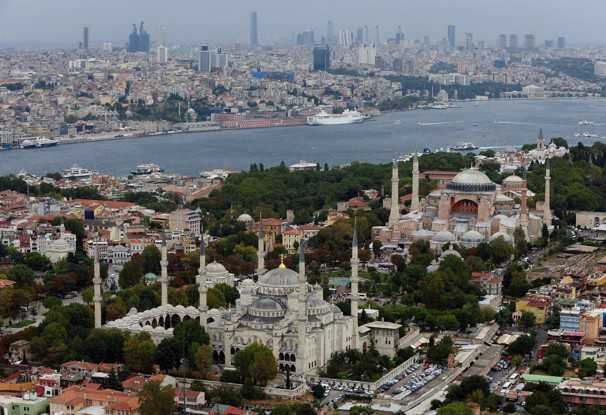Vote on H.Res.306 Set for Tuesday, December 13
 WASHINGTON–The U.S. House of Representatives is set to vote on Tuesday, December 13th on H.Res.306, a religious freedom measure that calls upon Turkey to return stolen Armenian, Greek, Assyrian, and Syriac church properties, reported the Armenian National Committee of America.
WASHINGTON–The U.S. House of Representatives is set to vote on Tuesday, December 13th on H.Res.306, a religious freedom measure that calls upon Turkey to return stolen Armenian, Greek, Assyrian, and Syriac church properties, reported the Armenian National Committee of America.
This religious freedom measure, which was adopted 43 to 1 on July 20th of this year by the Foreign Affairs Committee, was introduced by Representatives Ed Royce (R-CA) and Howard Berman (D-CA). It has been scheduled for a floor vote by House Majority Leader Eric Cantor (R-VA) under a special parliamentary procedure known as the Suspension Calendar. The text of the resolution that is set to come before the House will be the same as the abridged version adopted at the committee level.
“The bipartisan consensus and cooperation we are seeing in support of pressing Turkey to return stolen Christian properties within its present-day borders both reflects and also reinforces America’s enduring commitment to religious freedom, as so powerfully reaffirmed in the enactment by Congress of the International Religious Freedom Act, and so enduringly represented on the international stage by America’s leadership in supporting the Universal Declaration of Human Rights,” said Aram Hamparian, Executive Director of the ANCA. “We encourage supporters of religious liberty – of all faiths – to contact their legislators in support of H.Res.306, and call on all members of the U.S. House to cast their votes for this principled stand for freedom of faith.”
Take part in the ANCA action alert in support of H.Res.306.
For minute-by-minute updates on House consideration of the matter, follow the ANCA Facebook page. The ANCA Facebook page is open to the public, although to participate in the discussion or offer comments, you will need sign-in or register.
Historical Background
Armenians, Greeks, Assyrians, Pontians, Arameans, and Syriacs have long lived in present-day Turkey. Thousands of years before the establishment of the Ottoman Empire, they gave birth to great civilizations and established a rich civic, religious and cultural heritage. They were, upon these ancient and biblical lands, among the first Christians, dating back to the travels through Anatolia of the Apostles Thaddeus and Bartholomew. Armenia, in 301 A.D., became the first nation to adopt Christianity as a state religion.
During the World War I-era, after centuries of growing intolerance and persecution, Ottoman Turkey perpetrated a government-sponsored campaign of genocide against its Armenian and other Christians subjects, resulting in the murder of over 2,000,000 Armenians, Greeks, Assyrians, Pontians, Arameans, and Syriacs, and the exile of hundreds of thousands others from their homelands of thousands of years. The Republic of Turkey, heir to the Ottomans, continued these genocidal policies against the remaining Christian population, through ethnic-cleansing, violence, destruction of churches and religious sites, illegal expropriation of properties, discriminatory policies, restrictions on worship, and other means. As a result only a small fraction of the historic Christian population that once populated Anatolia remains in modern Turkey.
The endangered Christian communities within the borders of present-day Turkey, in addition to all the crimes and persecutions visited upon them throughout their histories, continue, to this day, to endure oppressive restrictions imposed by the government of Turkey on their ability to worship in freedom in their historic places of worship, which are still today in Turkish hands as the result of genocide.
The U.S. Commission on International Religious Freedom has designated Turkey as one of a handful of countries on their watch list for a third consecutive year. The State Department has documented the persecution of Christians in Turkey, including the improper confiscation of their properties. The remaining Christians in Turkey are, all too often, prevented from praying in their historic churches, many of which are desecrated on a daily basis and even used as storage sheds. In very rare instances, Turkey has undertaken repairs of selected Christian churches, but refused to return them to the rightful church owners, and instead converting them into museums, where prayer, as a rule, is prohibited.
via House Set To Call On Turkey To Return Churches | Asbarez Armenian News.

